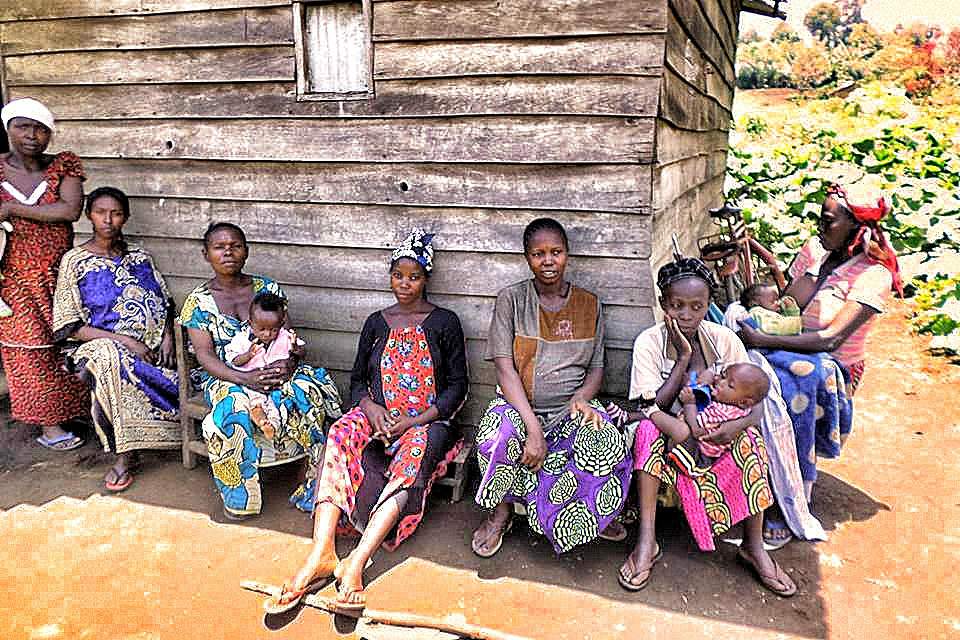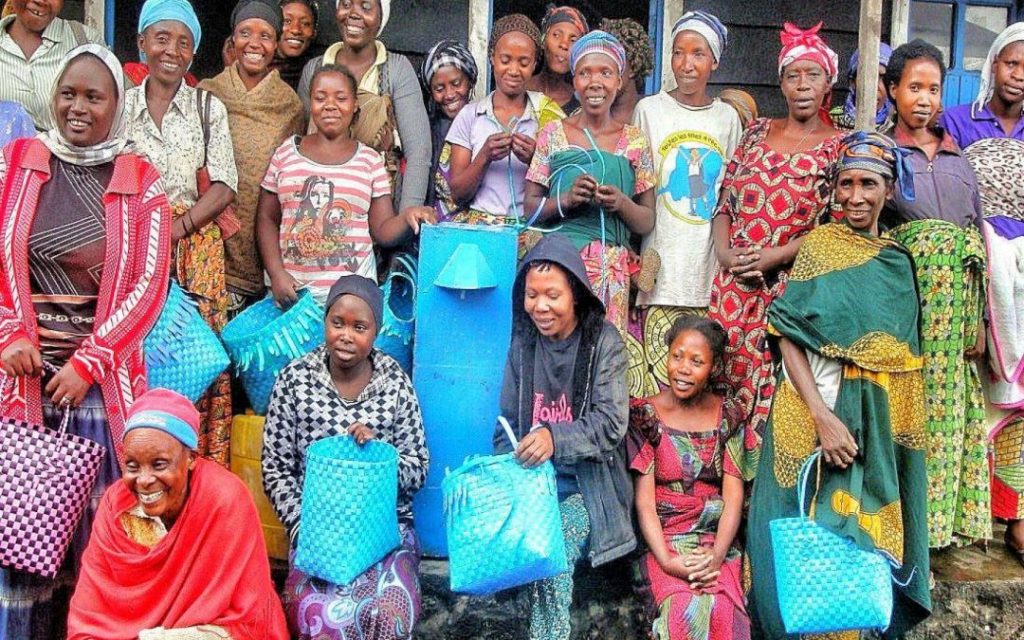Our 1st Water Filter Training Project in the Democratic Republic of Congo
This project has been completed. To read about the conclusion, CLICK HERE.
This project is made possible through the partnership of WATER CHARITY and the NATIONAL PEACE CORPS ASSOCIATION. ![]()
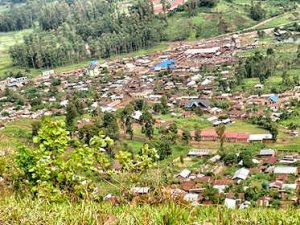 Location
Location
Minova, DRC
50 km west of Goma, on the northwest shore of Lake Kivu, in South Kivu Province, Democratic Republic of Congo
Community Description
The village has about 30,000 inhabitants, plus 5,200 internally displaced people in camps (refugees). There are another 30,000 or so in three surrounding villages.
The surrounding area is mountainous, with numerous volcanoes. The volcanic soil is fertile but does not hold water well.
War-Torn Area
- For the past 20 years, war has raged throughout the area, mostly over control of natural resources, including coltan.
- In 2012, Congolese government forces, backed by United Nations troops, fought and lost a major battle with M23 (and perhaps other) militia forces in Goma.
- Congolese troops retreated to Minova, where besides other destruction and killings, they raped at least 139 women and young girls as young as nine years old.
- Following an international outcry, a trial of 37 low-ranking soldiers was held in Goma, Dozens of survivors testified.
- Only two were found guilty of rape.
- The events and the trial are depicted in the 2015 Academy Awards shortlisted short film The Testimony. (It can be seen on Netflix) Photos from the trial can be seen here: http://www.dianazeynebalhindawi.com/the-minova-rape-trials-congo-2014/
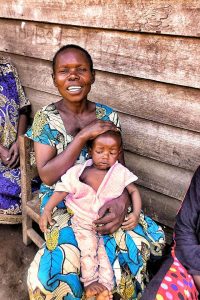 Women Coming Together
Women Coming Together
- Almost all the women had been farmers.
- Most of the husbands of the women who had been raped deserted them, leaving them without funds to send their children to school, or enough labor to tend their fields effectively. Food became scarce, and hunger was common.
- HIV had been relatively uncommon in Minova. However, the war – and rape – brought HIV to the community.
- A community leader named Masika Katsuva, who was among those raped, stepped forward to help organize a group of women in agriculture (180 in all), to give them a voice, and to help them come forward at the rape trial. She also set up a center for women and children abandoned by their families.
- Masika’s story is told in the 2014 feature-length documentary film Seeds of Hope. http://www.seedsofhopefilm.co.uk/ Watch the trailer on the website.
- Masika’s organization APDUD received significant international support before and during the trial.
- International support of APDUD fell off significantly after the trial.
In February 2016, Masika died, leaving APDUD in some disarray. Her daughter Desanges hopes to revitalize the organization, and at only 23 years of age, has already done a lot to promote the organization and organize local women.
It is through Masika’s women’s center organization APDUD, and working with Desanges Kamate Kabua, Congolese NGO leader Herman Chirahambali, and our friends at Friendly Water For The World, that Water Charity will be conducting this support and training in much-needed water filters. Herman met Dr. Kambale who does training and works for Friendly Water and recognized the need for this project immediately.
Problem Addressed
The area is prone to large amounts of waterborne illnesses. Cholera, dysentery, and a host of other pathogenic microbes pollute all the available water sources, and sickness due to these microbes is a huge problem. Children under 5 are especially vulnerable to such illnesses. Worldwide it is the 2nd leading cause of death for children, and in the DRC, Diarrheal Diseases are the #1 cause of death (according to the CDC and the WHO)!
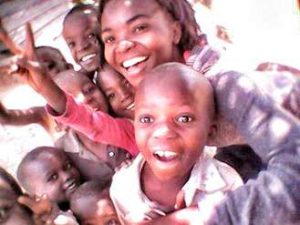 Project Description
Project Description
Water Charity will fund a bio-sand filter workshop led by trainers Dr. Kambale Musubao and Aristote Lubao Mbairwe (who work with our friends at Friendly Water Congo), for the women of Minova. At least 35 women will be provided with a 5-6 day training on how to construct, use, and care for their own bio-sand filters. These filters, when used correctly, can basically last forever… especially the cement mold types we will train them to make.
We will provide them with a few molds, and materials enough for all of the women to make their own filters. Manuals and printed training materials will be given out in Swahili, English, French, Kinyarwanda. Furthermore, they will receive business training by which they will build filters, and sell them (as well as water) to the people of the Minova area.
There will be an office established at the Women’s Center whereby the women of the program can advertise and sell their product… and in time, they can even begin to conduct their own training to spread the technology.
Funds raised by selling water and filters will go towards purchasing more molds, more materials, and more tools. Filters and water are in high demand, so there is every reason to believe that this effort will be sustainable, effective and successful. We expect that more women will come wanting to learn how to make these lifesaving devices, and the Women’s Center will be happy to share this with them. Thus, in a short time, the ability to make effective water filters will spread across the region.
All in all, a very sustainable effort with a great deal of positive “ripple effect!”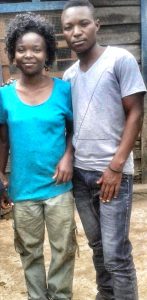
Project Impact
The project has the potential to help and impact all of the 65,000 plus people in the Minova area (Minova town, refugees, and the 3 neighboring villages). The direct, immediate beneficiaries include all the families and friends of the women of the Women’s center, as well as everyone who purchases a filter or water from them. This number is hard to pinpoint, but it should amount to 5,000 or more people in the first year alone.
Volunteers Directing Project
Herman and Desanges will be running the project on the ground, and management of the project will be under the direction of David Albert, Board Chairman of Friendly Water for the World, with Water Charity overseeing.
Herman Chirahambali
- Herman is a former school principal. His career came to an end when soldiers came and occupied his school, destroying all desks and burning all books. His mother was killed when rebels pillaged his village. His sister died of AIDS, the result of war-related rape. His wife died giving birth to his second child, who also died.
- Today, Herman is a volunteer for a non-profit that teaches environmental stewardship through language. They teach female farmers native literacy classes and also run an after-school English language program for children. They reach hundreds of women and children, yet still, struggle to raise the $6.00/month they need to rent their classroom while operating with no computer and only a few books.
Desanges Kamate Kabua
- Daughter of Women’s Center founder and current organizer and leader of APDUD.
- It was her drive to help the families of Minova that led to FW and WC becoming involved in this wonderful project.
Monitoring and Maintenance
Eliphaz Bashilwango (FW representative) will be tasked with reporting, in concert with Herman and Desanges, who will be there on the ground to make sure the project achieves its goals. Should further training and assistance become necessary, any of these individuals will be able to contact WC & FW and request such aid.
Comments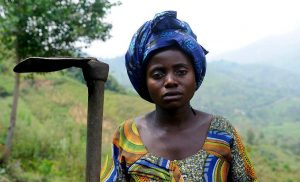
This noteworthy project is part of our Training and Support Initiative and is a sister project to our even larger and more comprehensive DRC filter project in Nyiragongo, Congo which is being started promptly. It is our desire to have a continuing and substantial effect on these communities, so expect even more projects of this nature there, including training the women to build rainwater catchments and Ferro-cement water tanks!
This project has been fully funded by a donor who wishes to remain anonymous. If you would like to see us expand, scale-up and do more projects like this one, use the DONATE button below, and your donation will go to more training projects like this one. Use the comments if you wish your donation to be used for DRC projects specifically.
This project has been completed. To read about the conclusion, CLICK HERE.
